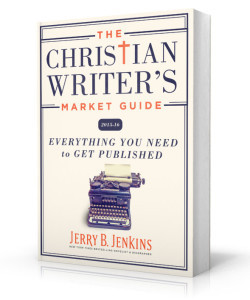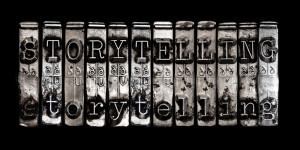Jerry B. Jenkins's Blog, page 26
June 30, 2015
5 Traits Published Writers Have in Common
I don’t know why you write. I have only an idea of why I do. Most people are gifted in some area or another—having an innate knack for a certain discipline.
At the risk of sounding falsely modest, I believe I was bestowed with only one gift, and that was a bent toward writing. That doesn’t mean I was brilliant at it or didn’t require a lot of training and experience. In fact, I’m one who believes that no writer ever arrives.
I fear that if I’m not growing, I’m stagnating. Thus, I’m committed to remaining a lifelong learner.
My work, and my study of the craft, have led me to conclude that there are at least five qualities shared by successfully published writers. Here’s my list. I’d love to see yours.
5 Traits Published Writers Have in Common
A love for reading. Writers are readers. Good writers are good readers. Great writers are great readers. Read everything you can about the craft of writing, but also read widely about virtually anything that interests you.
A reverence for listening. Be curious. Listen more that you speak. You’ll naturally listen carefully to colleagues and people you respect in the field, but also listen to people from all walks of life and every socio-economic level. That’s where ideas come from.
A devotion to learning. Commit to expanding your your knowledge everyday. Be insatiable about learning. A day without learning something new is a waste of 24 hours.
An impatience with the status quo. Never believe you’ve arrived. If you’re not growing and improving, you’re falling behind.
A fierce work ethic. The only way to write a book is with seat in chair. You can go to only so many writers conferences before it’s time to put up or shut up. At some point, you need to do the work.
While I had a bent toward certain sports, and some people think I am instinctively funny, writing is my only gift, and so I have felt compelled to exercise it. I don’t sing or dance or preach—writing is what I do.
Some say they write because they “can’t not write.” I know the feeling. Writers like us would write for free if we had to.
I have been asked when I knew I loved writing. I’ve never loved the writing itself. Writing is way too grueling to love. What I really love is being a writer, being known as a writer, and having written.
With what trait above do you most resonate? Is there one you would add?
The post 5 Traits Published Writers Have in Common appeared first on Jerry Jenkins Writers Guild.
June 23, 2015
The Christian Writer’s Market Guide 2015-16: Your Fast Track to Getting Published This Year
“How do I find a literary agent?”
“Which publishing house would be interested in my work?”
These are among the most common questions I get from writers, but there are myriad more.
The publishing landscape changes drastically every year, and it can cost you valuable time trying to keep tabs on it when you should be writing.
Well, that work has all been done for you, and you can have everything you need in the palm of your hand.
After months of research and thousands of dollars, my team and I are proud to offer you the 2015-16 edition of The Christian Writer’s Market Guide. This up-to-date resource will allow you to effortlessly find everything you need in just minutes.
We groom this anthology yearly, updating it with the latest information on the best Christian publishers for each genre, the top recommended professionals, and other little-known opportunities to sell your writing.
This new edition holds over 930 listings for:
Book Publishers
Magazines
Ezines
Special markets
Freelance editors
Writing coaches
Agents
Publicists
Consultants
And more
And to add value, I’ve included over 100 pages of the best writing tips and inspiration from my most trusted colleagues to keep you going when you feel like quitting.
My goal for the Guide has always been to take the legwork and stress out of your search for the perfect inspirational writing opportunities. It can take hours just to find a handful of mediocre leads in just one of these categories. But we’ve done the work for you!
If your goal is to get published in the Christian market, this resource is for you. You can grab your own copy by clicking here.
Have you ever tried to search for this kind of information by yourself? Tell me about your experience in the comments section below…
The post The Christian Writer’s Market Guide 2015-16: Your Fast Track to Getting Published This Year appeared first on Jerry Jenkins Writers Guild.
The Christian Writers Market Guide 2015-16: Your Fast Track to Getting Published This Year
“How do I find a literary agent?”
“Which publishing house would be interested in my work?”
These are among the most common questions I get from writers, but there are myriad more.
The publishing landscape changes drastically every year, and it can cost you valuable time trying to keep tabs on it when you should be writing.
Well, that work has all been done for you, and you can have everything you need in the palm of your hand.
After months of research and thousands of dollars, my team and I are proud to offer you the 2015-16 edition of The Christian Writer’s Market Guide. This up-to-date resource will allow you to effortlessly find everything you need in just minutes.
We groom this anthology yearly, updating it with the latest information on the best Christian publishers for each genre, the top recommended professionals, and other little-known opportunities to sell your writing.
This new edition holds over 930 listings for:
Book Publishers
Magazines
Ezines
Special markets
Freelance editors
Writing coaches
Agents
Publicists
Consultants
And more
And to add value, I’ve included over 100 pages of the best writing tips and inspiration from my most trusted colleagues to keep you going when you feel like quitting.
My goal for the Guide has always been to take the legwork and stress out of your search for the perfect inspirational writing opportunities. It can take hours just to find a handful of mediocre leads in just one of these categories. But we’ve done the work for you!
If your goal is to get published in the Christian market, this resource is for you. You can grab your own copy by clicking here.
Have you ever tried to search for this kind of information by yourself? Tell me about your experience in the comments section below…
The post The Christian Writers Market Guide 2015-16: Your Fast Track to Getting Published This Year appeared first on Jerry Jenkins Writers Guild.
June 22, 2015
Unraveling the Mystery of Your Unique Writing Voice (in Fewer Than 5 Minutes)
Based on the questions I hear wherever I speak, beginning writers agonize as much over this issue as anything else.
Trust me, while it’s crucial you find your voice and become distinctive, it really isn’t all that complicated.
You wouldn’t be able to tell that from the plethora of blogs, articles, and books on the subject. Google “finding your writing voice” and you’ll spend the rest of your day and night immersed in the opinions of everyone, it seems, who has ever been published.
I don’t want to be just another, um, voice among all the others, so let me take a shot at breaking this down and making it simple. I’ll do it by asking you to use your memory and your imagination and also by sharing a personally embarrassing story that I hope will make it stick.
The Surprisingly Simple 3-Step Process to Finding Your Voice
When determining what your writerly voice should sound like on the page, consider:
The coolest thing that ever happened to you
The most important person you told about it
What you sounded like
That’s as complicated as it needs to be.
Here’s how it works and how my story plays into this.
The highlight of my life was realizing that I had met the woman who would become my wife.
I could not wait to tell my best friend, who happened to work at an all-night gas station.
I sounded smitten, as interested in my story as anything I had ever said before.
I drove nearly three hours in the wee hours of the morning after leaving my beloved, pulled into the gas station, eyes alight, and made my friend drop everything else and sit before me to give me his full attention.
I sat atop a 55-gallon oil drum, then told him all about Dianna, and I mean everything. What she looked like, sounded like, how she acted, how much I loved her, that he would be in the wedding—
“Wedding?” he said. “Does she know how you feel?”
“She will soon enough,” I said, and I plunged on. For two hours I rhapsodized about a woman with whom I had spent not much more time than that. (We have been married 44 years now.)
The embarrassing part? I was wholly unaware, until I climbed down from that drum, that I had been sitting the whole time in a quarter inch of motor oil. It had soaked through my pants and down my legs. (It felt pretty good actually.)
When I arrived home at dawn, my mother took one look at me and said, “You’re in love.”
To my point:
You have a story idea, a novel. How do you go about telling it, writing it? What is your voice to sound like?
Imagine yourself sitting your best friend down and demanding their full attention, insisting, “Listen, have I got something to tell you…”
What comes next is your voice. Your writing should sound like you at your most engaged.
Writing first-person from the standpoint of your protagonist? Imagine them, sitting with their best friend, demanding their full attention…
If you don’t know your protagonist well enough to do that yet, you have more work to do.
BONUS: I’ve created a guide to help get you started on this exercise. For best results, print this document and fill it out by hand. You can click here or on the image below to download it for free: 
What have you discovered about your writing voice? Tell me in the comments below.
The post Unraveling the Mystery of Your Unique Writing Voice (in Fewer Than 5 Minutes) appeared first on Jerry Jenkins Writers Guild.
Unraveling the Mystery of Your Unique Writing Voice (in Less Than 5 Minutes)
Based on the questions I hear wherever I speak, beginning writers agonize as much over this issue as anything else.
Trust me, while it’s crucial you find your voice and become distinctive, it really isn’t all that complicated.
You wouldn’t be able to tell that from the plethora of blogs, articles, and books on the subject. Google “finding your writing voice” and you’ll spend the rest of your day and night immersed in the opinions of everyone, it seems, who has ever been published.
I don’t want to be just another, um, voice among all the others, so let me take a shot at breaking this down and making it simple. I’ll do it by asking you to use your memory and your imagination and also by sharing a personally embarrassing story that I hope will make it stick.
The Surprisingly Simple 3-Step Process to Finding Your Voice
When determining what your writerly voice should sound like on the page, consider:
The coolest thing that ever happened to you
The most important person you told about it
What you sounded like
That’s as complicated as it needs to be.
Here’s how it works and how my story plays into this.
The highlight of my life was realizing that I had met the woman who would become my wife.
I could not wait to tell my best friend, who happened to work at an all-night gas station.
I sounded smitten, as interested in my story as anything I had ever said before.
I drove nearly three hours in the wee hours of the morning after leaving my beloved, pulled into the gas station, eyes alight, and made my friend drop everything else and sit before me to give me his full attention.
I sat atop a 55-gallon oil drum, then told him all about Dianna, and I mean everything. What she looked like, sounded like, how she acted, how much I loved her, that he would be in the wedding—
“Wedding?” he said. “Does she know how you feel?”
“She will soon enough,” I said, and I plunged on. For two hours I rhapsodized about a woman with whom I had spent not much more time than that. (We have been married 44 years now.)
The embarrassing part? I was wholly unaware, until I climbed down from that drum, that I had been sitting the whole time in a quarter inch of motor oil. It had soaked through my pants and down my legs. (It felt pretty good actually.)
When I arrived home at dawn, my mother took one look at me and said, “You’re in love.”
To my point:
You have a story idea, a novel. How do you go about telling it, writing it? What is your voice to sound like?
Imagine yourself sitting your best friend down and demanding their full attention, insisting, “Listen, have I got something to tell you…”
What comes next is your voice. Your writing should sound like you at your most engaged.
Writing first-person from the standpoint of your protagonist? Imagine them, sitting with their best friend, demanding their full attention…
If you don’t know your protagonist well enough to do that yet, you have more work to do.
BONUS: I’ve created a guide to help get you started on this exercise. For best results, print this document and fill it out by hand. You can click here or on the image below to download it for free: 
What have you discovered about your writing voice? Tell me in the comments below.
The post Unraveling the Mystery of Your Unique Writing Voice (in Less Than 5 Minutes) appeared first on Jerry Jenkins Writers Guild.
Unraveling the Mystery of Your Unique Writing Voice
Based on the questions I hear wherever I speak, beginning writers agonize as much over this issue as anything else.
Trust me, while it’s crucial you find your voice and become distinctive, it really isn’t all that complicated.
You wouldn’t be able to tell that from the plethora of blogs, articles, and books on the subject. Google “finding your writing voice” and you’ll spend the rest of your day and night immersed in the opinions of everyone, it seems, who has ever been published.
I don’t want to be just another, um, voice among all the others, so let me take a shot at breaking this down and making it simple. I’ll do it by asking you to use your memory and your imagination and also by sharing a personally embarrassing story that I hope will make it stick.
The Surprisingly Simple 3-Step Process to Finding Your Voice
When determining what your writerly voice should sound like on the page, consider:
The coolest thing that ever happened to you
The most important person you told about it
What you sounded like
That’s as complicated as it needs to be.
Here’s how it works and how my story plays into this.
The highlight of my life was realizing that I had met the woman who would become my wife.
I could not wait to tell my best friend, who happened to work at an all-night gas station.
I sounded smitten, as interested in my story as anything I had ever said before.
I drove nearly three hours in the wee hours of the morning after leaving my beloved, pulled into the gas station, eyes alight, and made my friend drop everything else and sit before me to give me his full attention.
I sat atop a 55-gallon oil drum, then told him all about Dianna, and I mean everything. What she looked like, sounded like, how she acted, how much I loved her, that he would be in the wedding—
“Wedding?” he said. “Does she know how you feel?”
“She will soon enough,” I said, and I plunged on. For two hours I rhapsodized about a woman with whom I had spent not much more time than that. (We have been married 44 years now.)
The embarrassing part? I was wholly unaware, until I climbed down from that drum, that I had been sitting the whole time in a quarter inch of motor oil. It had soaked through my pants and down my legs. (It felt pretty good actually.)
When I arrived home at dawn, my mother took one look at me and said, “You’re in love.”
To my point:
You have a story idea, a novel. How do you go about telling it, writing it? What is your voice to sound like?
Imagine yourself sitting your best friend down and demanding their full attention, insisting, “Listen, have I got something to tell you…”
What comes next is your voice. Your writing should sound like you at your most engaged.
Writing first-person from the standpoint of your protagonist? Imagine them, sitting with their best friend, demanding their full attention…
If you don’t know your protagonist well enough to do that yet, you have more work to do.
BONUS: I’ve created a guide to help get you started on this exercise. For best results, print this document and fill it out by hand. You can click here or on the image below to download it for free: 
Let me know if this helps you find your writing voice.
The post Unraveling the Mystery of Your Unique Writing Voice appeared first on Jerry Jenkins Writers Guild.
June 10, 2015
The Priceless Value of Reading Other Writers
Reading great writing inspires me to write my best too. So whenever I’m on deadline, I read another book at the same time.
I look for something wholly aside from what I’m immersed in, so if I’m writing a novel, I’ll read nonfiction, and vice-versa. The reading allows an escape from the obsession with my own project without throwing me off track.
The important thing is to give your mind a break from your work while you dive into someone else’s creative endeavor.
While writing Armageddon in the Left Behind series, I re-read Sol Stein’s How to Grow a Novel. The subtitle is “The Most Common Mistakes Writers Make and How to Overcome Them.”
The cover refers to Sol as “a successful editor, novelist, and award-winning teacher of writers” and to the book as “a workshop in book form.”
Having been to one of Sol’s fiction weekends, I found the description apt. Only because I found him so accessible in person am I brazen enough to call by his first name a man twenty years my senior.
A few years ago the Modern Library convened a panel to name the best nonfiction books of the 20th Century. Two books Sol edited made the list. But he is more known for his nine novels and the countless others he has edited.
What I learned reading Sol Stein:
Dig deep to touch deep. “In the early stages of developing a story, it pays to root the story in an experience that was an emotional marker in your life.”
Celebrate suffering. “Some writers suffer while writing. I regret their pain and am glad to report that as one masters the craft, the pain ebbs and the pleasure of being able to control the result can bring the second-greatest pleasure of life: the creation of text that arouses the emotions of distant readers.”
Position opposition. “The engine of fiction is conflict—somebody wanting something and going out to get it. And if you let him get it right away, you’re killing the story. He can’t get it because a mountain or a man is in the way, nature and human nature in opposition to achievement. Without that opposition, fiction is a vehicle without an engine.”
Unveil your story. “You can begin with a flash fire in the kitchen that endangers the entire house (melodrama), or you put a pot on to boil, bubbling and simmering, as you show your characters acting in a situation that is slowly alarming, a conflict developing into the big event that will hold the reader curious, concerned, perhaps even enthralled, gripped as if glued to your story for its duration.”
You can grab your own copy of Sol Stein’s How to Grow a Novel here.
Writers must be readers, so read something good while writing your next project and I promise, it will influence your current work.
So, what are you reading? I’d love to hear!
The post The Priceless Value of Reading Other Writers appeared first on Jerry Jenkins Writers Guild.
June 8, 2015
The 11 Best Books on Writing I’ve Ever Read

Regardless how many books I’ve written (neary 200) and sold (over 70 million), I fear if I’m not learning, I’m stagnating.
My late mother was a convicting example of one who never believed she had arrived. Mom was not only a piano teacher well into her eighties, but she was also a piano student.
So it’s the memory of my mother that spurs me also to keep reading everything there is to read—especially about writing.
The books below (in alpha order by author) represent a fraction of those available. You could read one per day for the rest of your life and not exhaust the resources. But, in my opinion, these are the best books on writing available.
Some require wearing your big kid pants due to language, which I have noted.
11 Writing Books Every Aspiring Author Should Read
Marie Arana. The Writing Life: Writers On How They Think and Work
This book came from ten years of Ms. Arana’s Washington Post Book World column. More than fifty fiction and nonfiction authors share how they discovered they were writers and how they work. I was fascinated by what pleases and annoys them. Arana also profiles each writer.
James Scott Bell (friend and colleague). Plot & Structure: Techniques and Exercises for Crafting a Plot that Grips Readers from Start to Finish
Anything but a dry textbook, this breezy guide is from a former trial lawyer who keeps you entertained while covering basics like how plot impacts structure, the difference between popular and literary fiction, and how to serve as your own book doctor.
Brandilyn Collins (friend and colleague). Getting into Character: Seven Secrets a Novelist Can Learn from Actors
Calling on her theater training, Collins teaches bringing characters to life the way actors do on stage. She draws on the Method Acting approach to explain and adapt characterization techniques for novelists.
Annie Dillard. The Writing Life
Dillard’s hauntingly ethereal prose soars even when she’s writing about writing. That’s rare. I resonate with her honesty about how grueling the craft can be. This is one of the best books on writing available.
Stephen King (acquaintance). On Writing: A Memoir of the Craft [language]
At the risk of hyperbole, there’s so much to recommend here that I hardly know where to begin. Besides all the practical advice, you get King’s own rags-to-riches story in his inimitable voice. You learn a ton while being wildly entertained.
Dean Koontz. How to Write Bestselling Fiction [mild language]
I’m not overstating it that this book changed my life. It informed the way I wrote the Left Behind series, which has sold more than 60 million copies and still sells six figures every year, nearly a decade since the last title was released. I use this as a textbook when I teach writing.
Anne Lamott. Bird by Bird: Some Instructions on Writing and Life [language]
Lamott has you howling with laughter one minute and weeping the next as she recounts, with brutal honesty, the joys and travails of the writing life, single parenting, overcoming addiction, and coming to faith.
Donald Maass. Writing the Breakout Novel: Insider Advice for Taking Your Fiction to the Next Level
An agent challenges you to do more than just spin a yarn, but to also think “big concept,” tackle major themes, and write life-changing books.
Sol Stein (acquaintance). Stein On Writing: A Master Editor of Some of the Most Successful Writers of Our Century Shares His Craft Techniques and Strategies
Novelist, editor, publisher (Stein & Day), and writing teacher, Stein is one of the deans of the American literary scene. His career spans decades, and he shares insider stories of famous novelists and their work, as well as everything he learned along the way. I sat under his teaching years ago and still follow his advice.
William Zinsser. On Writing Well: An Informal Guide to Writing Nonfiction
Zinsser’s background should not be missed. He was a graceful classicist as a writer, and this million-seller has been lauded for its warmth and clarity. Zinsser offers sound tips on the fundamentals of writing any kind of nonfiction you can think of.
Now, don’t read any of those books, until…
…you’ve read the bible of writing books:
William Strunk Jr. and E. B. White, The Elements of Style
Failing to start your reading on writing with anything other than this undisputed classic would be akin to reading the top ten Christian classics while ignoring the Bible. This short paperback is recommended by every writing teacher I know. I’ve read it at least once a year for more than 40 years. Its simple truths cover everything from style and grammar and usage. Make them second nature.
If you’ve read none of the other books on this list, start with Stephen King’s On Writing. A short course in mistakes to avoid, it’ll remind you why you wanted to be a writer. Then, especially if you want to be a novelist, read Dean Koontz’s How to Write Bestselling Fiction.
You could learn more in just those two books than in an entire college writing course.
BONUS: If you’re ready to graduate to my ultimate reading list for writers, which includes 7 novels and 7 nonfiction titles from which you can pick up skills, you can download it for free by clicking the image below: 
What’s your favorite writing book? Share it with all of us in the comments section…
The post The 11 Best Books on Writing I’ve Ever Read appeared first on Jerry Jenkins Writers Guild.
May 26, 2015
3 Secrets to Writing a More Powerful Story
Do you ever feel, as I do, that sometimes your scenes fall flat and you’re convinced there’s not enough oomph on the page to move your reader, let alone make an editor want to buy your story?
Here are three things I remind myself when I face that dilemma. Then a quick, but heavy, edit and rewrite usually gets me right back on track.
How to Write a Story That Compels Your Reader
1. Get off the stage.The toughest challenge for any artistic creator is to resist the urge to show off. Our name will be on the cover, and we’d love to remind the reader with a turn of phrase or a choice word, “I’m the one fashioning this message.”
But the best writers, like the best composers and painters, know it’s not about them. It’s about the art, the content.
Anything that comes between the story and the reader—yes, even you—is intrusive.
A reader aware of your technique, even of your talent, may miss your message. If the pianist dazzles with his technique, the composer’s art may be compromised.
Entice readers by making every word count, using ones they’ll understand rather than ones that will make them wonder.
A true classic transports the reader. Force yourself to get out of the way so the heart of the message can reach the soul of the reader.
2. Don’t compromise. Remain true to your message. Be able to express it in one sentence and post it where you can see it as you write. It will keep you on point throughout the process.
3. Inject conflict. This is the failsafe. When nothing else brings your prose to life, conflict will. You’ve likely seen me write about this before, and you’ll see it again. It’s a sin to bore a reader, so if you have two characters in a scene and they’re merrily agreeing with each other, you’re sinning.
Just have one of them respond in a snarky, sarcastic, mean, disagreeable, angry, or defensive way (or all of the above), and see what happens. Conflict is the engine of fiction, and it will light up the page—and your reader.
What is your toughest storytelling challenge?
The post 3 Secrets to Writing a More Powerful Story appeared first on Jerry Jenkins Writers Guild.
May 19, 2015
You Can Avoid This Rookie Writing Error
One of the most common mistakes I see new writers make is trying to start their careers with a book.
Why is that wrong?
Because starting your writing career with a book is like starting your education in graduate school when you’re five years old.
I’m not trying to discourage you; I just want you to get real.
Start small and learn the craft so you can enjoy the journey. Write for the joy of it, to see your name in print, even if you’re giving your work away or being paid in copies.
Why? Because there’s a lot to learn!
You need to work countless clichés out of your system, build and tone writing muscles, and learn both the business and the craft. Simply wanting it is not enough.
Sure, it’s easier than ever to get something printed. But there’s a big difference between being printed and being published. What do you really want—to show off a mediocre book with your name on it, or to sell a manuscript to a company that will turn you into a legitimately published author? That should be your goal.
Companies everywhere will take your check and put your written words into published format, making them look like a real book—print or electronic. But that doesn’t mean you’ve been published. That means you’ve paid to be printed.
If you’re serious this and want to be legitimately published, where you’re not paying but someone is paying you and taking all the risks because your writing is valuable and worth such an investment, there is work to be done, there are mistakes to be made, an education to be earned, a level of fitness to achieve. Then come the rewards, I promise.
No one can guarantee bestsellers or big royalty checks, but it should be obvious that being legitimately published is way more fulfilling than paying to be printed.
Starting points:
Study the field. Learn everything there is to know about how to submit your material.
Start small. Write for local publications, and when you have clips to show, try regional magazines, then national. You may be rejected occasionally, but you’ll learn. You’d be surprised at how many submissions magazine and online editors get from people who don’t even know to format their submissions or what subjects are appropriate for which publications. Just doing your homework in advance will set you apart from the competition.
Blog or guest blog. The online world is hungry for good writers. Now is your time. Getting published—consistently—online is a great building block for your career. Explore the type of blogs you like and could see yourself writing. Zero in on one, study its distinctives and its audience, then craft a few ideas and pitch the editor about writing a guest blog or two. If you can’t find a good fit, start your own blog. Reader feedback will prove invaluable to guide your future writing.
Articles before novels. Approach magazines, e-zines, and newspapers to gain experience before tackling novels or nonfiction books. Become your own toughest critic.
Develop wisdom. Avoid tackling issues beyond your grasp—like writing a memoir while still in your twenties. You need years of reflection before you can make sense of your life and present it so it will have a real impact on readers.
Know your limits. As a magazine editor, I once received a query letter from a teenager proposing a 1,500-word, first-person piece titled “The Meaning of the Universe.” That’s akin to my trying to write an essay that would solve the conflicts in the Middle East.
Are you laying the groundwork for success in your writing career? What’s your next step?
The post You Can Avoid This Rookie Writing Error appeared first on Jerry Jenkins Writers Guild.





